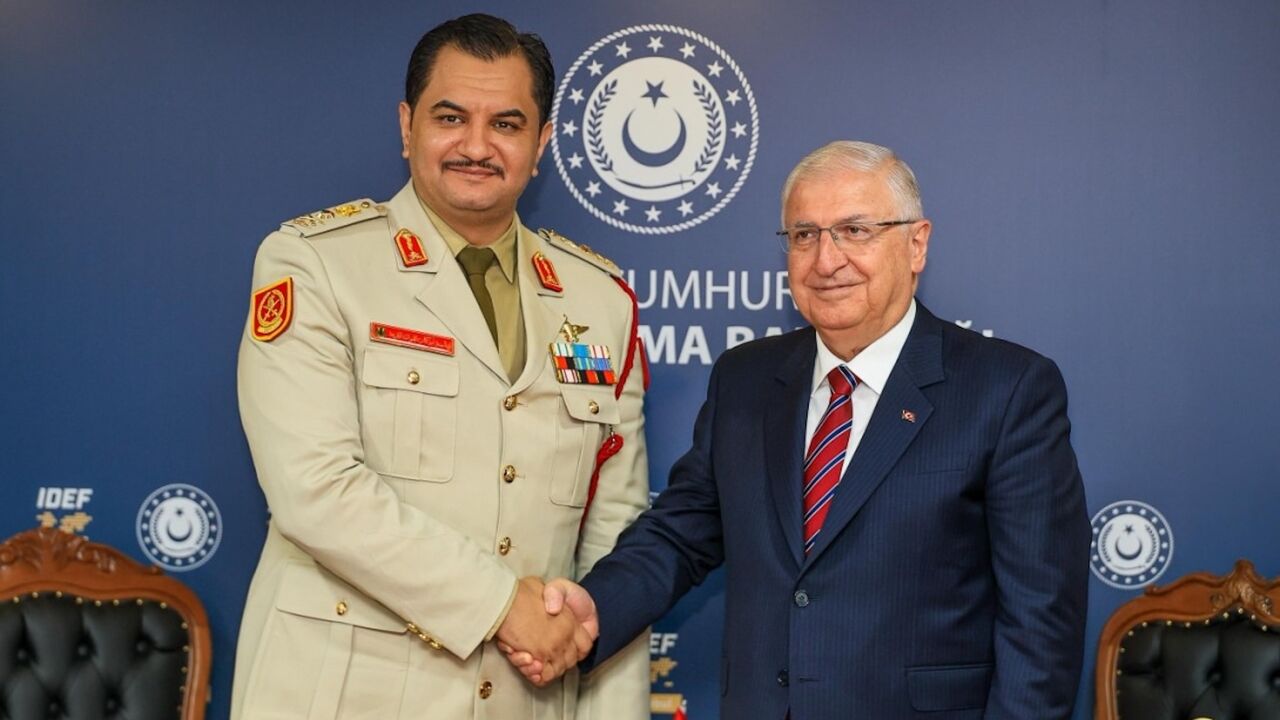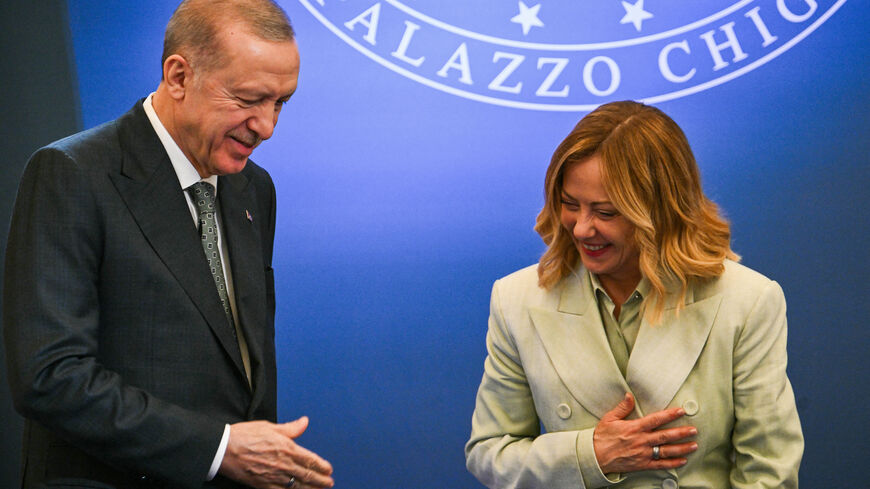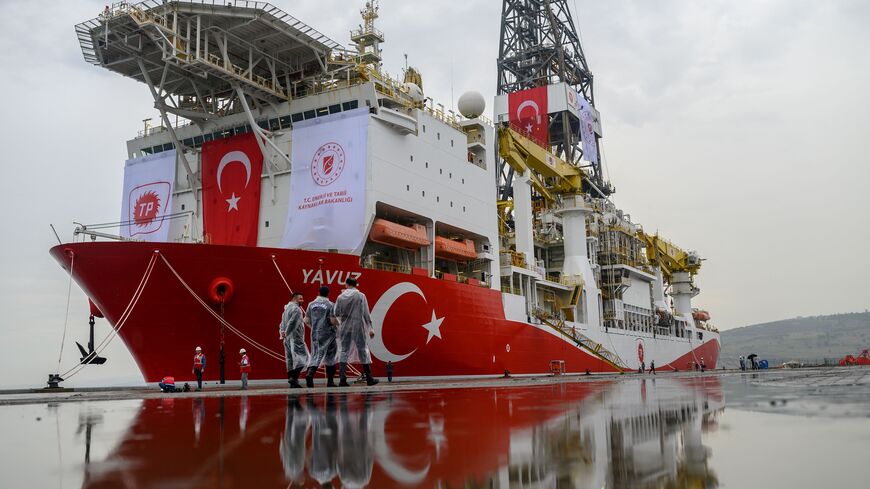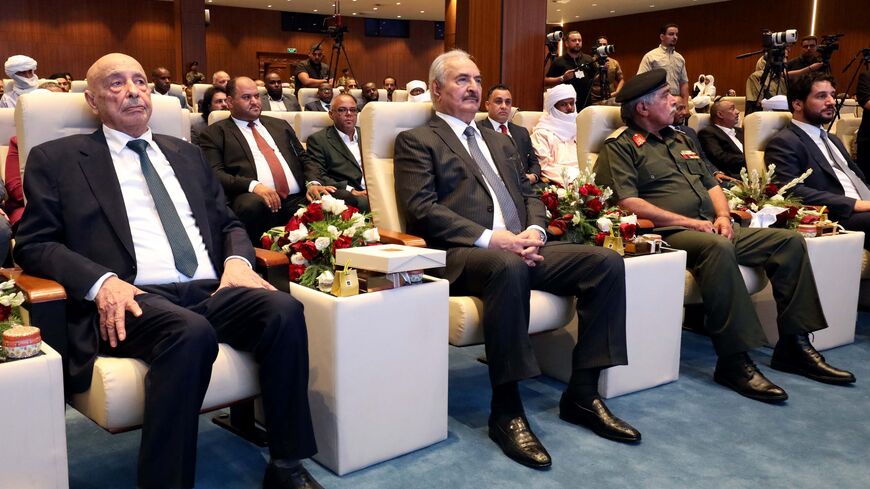Turkey defense chief meets Saddam Hifter as thaw with Libya continues
Turkey's defense chief met with the ground forces commander of the Libyan Armed Forces as Ankara reaches out to Libya’s eastern administration.

ANKARA — Turkish Defense Minister Yasar Guler met Wednesday with Saddam Hifter, commander of the Libyan National Army’s ground forces, as contacts deepen between Ankara and Benghazi, which hosts a rival administration to the Ankara-backed government in Tripoli.
What happened: Guler and Hifter met in Istanbul on the sidelines of IDEF25, a major annual defense fair, a senior Turkish Defense Ministry official told journalists Wednesday. The official did not elaborate further.
Hifter is the son of Khalifa Hifter, who heads the LNA and wields de facto control over Libya’s eastern-based government.
Why it matters: The meeting came as contacts intensify between Ankara and the eastern-based rival to the Tripoli-based and internationally recognized Government of National Unity.
Turkey backed Tripoli-based forces against the Hifter-led LNA until a UN-brokered ceasefire between the two warring parties in 2020. Turkish military support tipped the balance of power in favor of the western forces in Libya’s civil war, which began in 2011 following the ouster of longtime dictator Moammar Gadhafi in a NATO-backed popular uprising.
Following the ceasefire, Ankara adopted a more balanced policy, engaging with the Hifter camp to protect and advance its interests on the ground amid the country’s de facto division.
Last year, Turkish Foreign Minister Hakan Fidan announced plans to reopen Turkey’s consulate in Benghazi. Direct contacts with the Hifter family followed. Prior to his current visit, Saddam Hifter met with Guler in Ankara in April.
Know more: As ties between Ankara and the Hifter camp deepen, Libya’s eastern-based parliament has begun reviewing a controversial maritime delimitation agreement Turkey signed with the Tripoli-based government in 2019. Hifter’s bloc opposed the deal at the time.
Greece and the Republic of Cyprus vehemently object to the deal, accusing Turkey of violating their maritime sovereignty.





